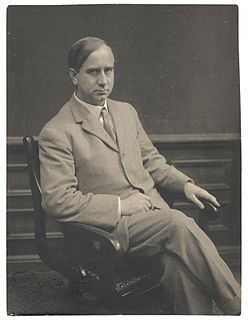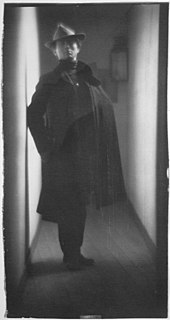A Quote by Claude Monet
I say that whoever claims to have finished a canvas is terribly arrogant.
Related Quotes
There is an appearance of humility in the protestation that the truth is much greater than any one of us can grasp, but if this is used to invalidate all claims to discern the truth it is in fact an arrogant claim to a kind of knowledge which is superior to [all others]...We have to ask: 'What is the [absolute] vantage ground from which you claim to be able to relativize all the absolute claims these different scriptures make?
No one would want to pay a penny for an empty canvas by me. But it would be quite another if the empty canvas were signed by a great artist. I would be surprised if an empty canvas by Picasso or Matisse signed and inscribed with the words, 'I wanted to paint such and such on this canvas, but did not do so,' would not fetch thousands... After all, with an empty canvas, the possibilities are limitless, and so perhaps is the cash.
Even the wisest of mankind cannot live by reason alone; pure arrogant reason, denying the claims of prejudice (which commonly are also the claims of conscience), leads to a wasteland of withered hopes and crying loneliness, empty of God and man: the wilderness in which Satan tempted Christ was not more dreadful than the arid expanse of intellectual vanity deprived of tradition and intuition, where modern man is tempted by his own pride.
I don't have an idea for a play until after I've finished writing it. I write first, and come up with what it's about later. My technique could be compared to having a large canvas and coming in every day and putting a dot on it somewhere, and after several years - literally - I begin to say, That reminds me of an elephant, so I think I'll make it one.
Just slap anything on when you see a blank canvas staring you in the face like some imbecile. You don't know how paralyzing that is, that stare of a blank canvas is, which says to the painter, ‘You can't do a thing’. The canvas has an idiotic stare and mesmerizes some painters so much that they turn into idiots themselves. Many painters are afraid in front of the blank canvas, but the blank canvas is afraid of the real, passionate painter who dares and who has broken the spell of `you can't' once and for all.
I have always been jealous of artists. The smell of the studio, the names of the various tools, the look of a half-finished canvas all shout of creation. What do writers have in comparison? Only the flat paper, the clacketing of the typewriter or the scrape of a pen across a yellow page. And then, when the finished piece is presented, there is a small wonder on one hand, a manuscript smudged with erasures or crossed out lines on the other. The impact of the painting is immediate, the manuscript must unfold slowly through time.







































